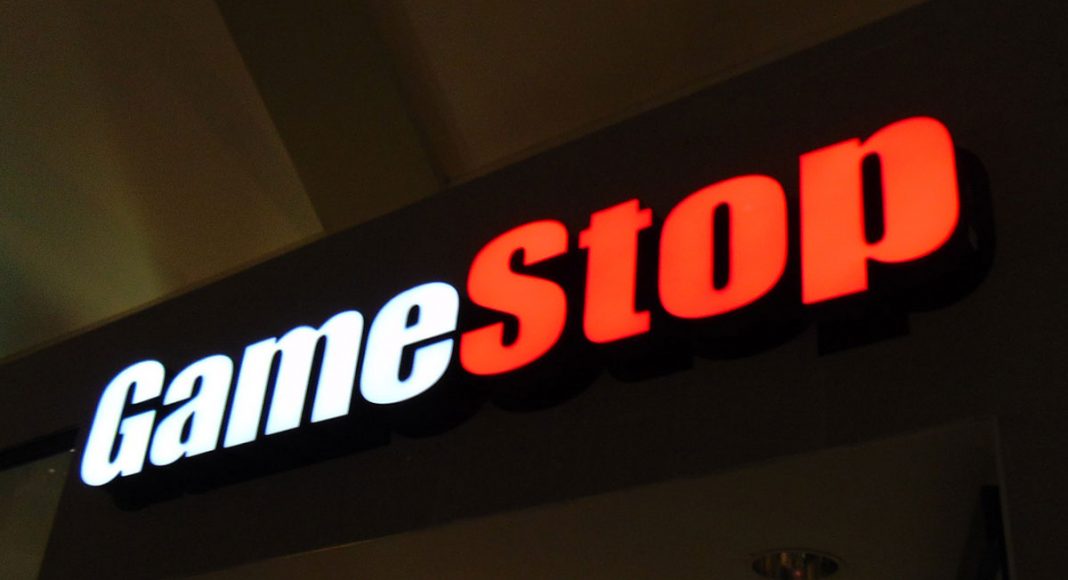In an interview with ProMarket, short-seller Fahmi Quadir, who has shorted companies like Wirecard and Valeant, discussed the public perception of short-sellers and what lessons, if any, there are to be learned from the GameStop scandal.
Short sellers have a bad rap. Their bad reputation might have peaked in the recent weeks when the self-described “financial detectives” faced backlash for shorting GameStop. But Redditors and retail investors are not the only ones who tend to think of short sellers as the bad guys. That impression extends to some regulators as well.
Consider what happened with Wirecard: in 2016, anonymous short sellers published a report raising concerns about Wirecard’s balance sheet, alleging possibility of money laundering. Instead of investigating Wirecard, German regulators launched an investigation into short sellers, accusing them of market manipulation. Years later, when it was discovered that about €1.9 billion of Wirecard’s cash disappeared, or did not exist at all, Felix Hufeld, the head of Germany’s financial watchdog BaFin, suggested that the missing cash might have been part of an elaborate attack by short sellers.
Among the short sellers targeting Wirecard was Fahmi Quadir, founder of Safkhet Capital, a short-only fund. She is one of these “financial detectives”, who research companies that might be up to no good and then short their stocks based on what they find. According to her, more investors should be thinking like short-sellers. Not fewer.
“The ideas related to short-selling—the way we approach research, the way we ask questions, this notion of getting to the truth of these companies—I think every investor should do that. If more investors thought about investing like short sellers do, I think you’d have a freer, fairer market,” Quadir told the audience during a 2018 Stigler Center event.
Short sellers say they play an important role in the market, helping with price discovery and even exposing fraud, like in the cases of Wirecard and Valeant, the “pharmaceutical Enron” whose fraudulent conduct was exposed by short sellers including Quadir and Citron Research. But due to the backlash targeted at those shorting GameStop stocks, Citron Research is now pivoting away from short selling to helping investors buy stocks for the long term. “The risk-reward of being a short seller is not worth it; it’s not worth it for me or my family,” Andrew Left, founder of Citron, told the Wall Street Journal.
Quadir is no stranger to the downsides of short selling, which besides potentially losing millions of dollars include being followed and, as the New York Times recently put it, being “reviled by executives and shareholders alike.” And while dealing with such hatred might be a cost of doing business, Quadir worries that we might be losing sight of the crucial role short sellers play in the market.
In a ProMarket interview, Quadir discussed the public perception of short sellers, whether there are any lessons to be learned from the GameStop scandal, and the Wirecard short selling ban.
[The following conversation has been edited and condensed for length and clarity.]

Q: Do you agree with the New York Times’ description of short sellers as “Wall Street’s most reviled investors”?
I really hated that headline. I’m unsure why the public is so selective about assigning moral virtues or indignations across Wall Street. Why aren’t we talking about what private equity has done for the past several decades? Or the investors that allocate to companies whose bottom line is driven by laying people off in the middle of a pandemic or taking advantage of consumers? Short sellers are always an easy boogeyman because people either don’t understand what they do or it’s easy to generate populist rage around the idea of “betting against” capital.
Q: You say that hate is a cost of doing business. Is it worth it?
There is nothing more satisfying than seeing justice served and some fractional amount of order be restored to markets. That makes up for all the rest. I love what I do, public perception be damned.
Q: As you point out, your hedge fund focuses on exposing things like organized crime and money laundering. Does the GameStop narrative paint all short sellers with the same brush? Do you worry what the effects of that might be?
While there should be nuance when we discuss short selling, I also don’t want to prescribe my worldviews and personal morality to the broader market. I short companies with moral motivations, sure. However, short selling serves a fundamental market role that is entirely separate from that. We can’t lose sight of this, particularly when it’s very likely the market will eventually have some form of correction and short sellers will undoubtedly be portrayed as the barbarians at the gate; if and when that happens, we need to ensure those in power understand short selling well enough not to repeat the same mistakes made in ’08.
Q: Mistakes like what?
Short selling bans.
Q: Did you watch the GameStop hearing? What did you think? Do you agree that the GameStop debacle exposed the need for regulation and/or oversight?
Parts. I think what is far more important is what happens behind closed doors. That means educating legislators, reminding them the counterintuitive and negative impacts of curtailing short selling. I don’t think GameStop exposed anything as far as short selling; short sellers are already heavily regulated, we don’t get capital gains tax treatment. I think it’s absolutely ludicrous that additional short position disclosure requirements are being proposed, when in the case of GameStop the squeeze occurred precisely because this was a short via puts position [made] public in a 13F filing. Our disclosure regime depends on “control” and short sellers have zero controlling interest in the issuers they bet against. Further, issuer retaliation is real. That’s lawsuits, that’s harassment, private investigators, and in some cases—mortal threats. Most fundamental short sellers have already been wiped out. I just hope enough of us can survive to pick up the pieces.
“Most fundamental short sellers have already been wiped out. I just hope enough of us can survive to pick up the pieces.”
Q: After all this time, has anyone learned anything from the Wirecard scandal? Has anything changed?
For there to be lessons, there needs to be a will to learn and to dissect and to change things moving forward. I’m unsure if there is just a real, earnest willingness to make the necessary changes, but am heartened by the seriousness with which the Parliamentary inquiry is proceeding as well as the desire within the [German] Ministry of Finance to engage in systemic, cultural change. This is of course not the first time that Germany finds itself in the middle of a massive financial scandal, even in recent history. In some ways, the initial insistence on labeling Wirecard an “Enron” or an accounting story has inadvertently given new life to investigative efforts and amplified the impact of each new headline that emerges—i.e., bank accounts for Russian oligarchs, secret meetings with Trump admin officials, etc.
Q: Do you have any theories why that is?
Well, I think the anti-money laundering space has changed a lot, starting with the Bank Secrecy Act. Then more recently, you have the Magnitsky act. All of that has really changed the way that various jurisdictions view money laundering, and incrementally it gets more difficult to do it. It’s almost like a cat and mouse chase. It’s like, jurisdictional hopping. But this is true of any segment of the industry, not just money laundering. If there is a profit incentive, and there is a lack of will, across the majority of stakeholders to take on that business for whatever reason, then what does that mean? That means you get a bigger slice of the pie, and you can potentially capitalize on this unique opportunity that no one else wants to touch. And it almost feels like that’s what’s happening in Germany, if you look at the history of the major German banks and the money laundering scandals there.
Q: Instead of looking at the problem that was being highlighted by journalists and short sellers, the regulator seemed to attack the messengers and investigate them. Do you think next time journalists or short sellers try to ring alarm bells about a certain company their message will be perceived differently?
Perhaps they’ll be believed more by market participants, the investors in the market. Do I believe that the regulators will view short sellers any differently? I think that’s a stretch. Because part and parcel of everything that happened, it wasn’t ignorance. It wasn’t that the regulators were unaware of what was going on, and there was wool over their eyes, that isn’t the issue here. The regulators were fully aware of what was going on. And if you look at the connection that executives had, within the spheres of power and influence, whether that’s within Germany, within Austria, wherever it may be, these guys were very well connected. And even at the height of the scrutiny, political actors were still pushing Wirecard.
So regulators can’t throw their hands up and just say they didn’t know any better, they can’t keep pointing their fingers. They knew. Whistleblowers had gone forward to regulators, even before any of this news was made. And nothing was done about it. It was willful blindness. And what we really need to get to the bottom of is why that is. Why did they willingly choose to ignore all of these issues? The idea that they’re going after the messenger, it was just pure theater, just deflection, as a way to try to detract from the claims being made, when they always knew that there was legitimacy to those claims.

Q: A recent brief commissioned by the European Parliament recommended that new restrictions and requirements be put in place to make it more difficult to enact short selling bans in the future. You, yourself, had strong feelings about the short selling ban on Wirecard.
The funny thing is that almost unanimously, developed market regulators stated that bans on short selling don’t have the intended impact. In fact, they might even have a detrimental impact. And the biggest case of this was the ban on shorting financials back during the recession. It didn’t suddenly solve all of the problems. Everyone psychologically, I guess, likes to think that if we remove short selling we’ll somehow save the markets.
“Once you start eliminating that countervailing force in the market of shorting, the majority of which is not done just to identify fraud and make a bet against it, the majority of it is done as a way to hedge, it is basically creating an artificial market.”
The thing is markets depend on liquidity. They depend on informational efficiency, and they depend on price discovery. So once you start eliminating that countervailing force in the market of shorting, the majority of which is not done just to identify fraud and make a bet against it, the majority of it is done as a way to hedge, it is basically creating an artificial market. And that isn’t something that’s sustainable, and it will never have the impact that is expected. There isn’t a single person that didn’t think that the short selling ban was incredibly unusual, and also highly inappropriate. That was broadly understood. But the thing with ESMA (European Securities and Markets Authority) is they didn’t push back when BaFin came and suggested that this ban put be put in place
Q: Do you think at least maybe the public’s perspective or even understanding of short sellers is improving?
I would hope so. I think this was definitely a wake-up call to German investors, who perhaps are not as experienced with short sellers in the market. I think in the US more generally, everyone accepts—and most market participants also engage in—some short selling activity. But European markets are just not at that stage yet. They’re just not as sophisticated, but they’re getting there. Every time there’s a major scandal like this, I think it will start to shift the collective perception of what short selling really is. So yeah, I think it will start to change and investor base behavior overall. And maybe that’s what is needed to ultimately result in regulatory change.
Q: Is there a way for short sellers and regulators to work together in the future?
I regularly work with regulators. I feel I have a civic duty, if over the course of my research, I come across evidence or strong possibility that a company may be engaged in criminal activity, or may be somehow evading regulation, or breaking laws. And when I have evidence of that, I feel as though I have a responsibility to report it to the appropriate authorities. But as a short seller, because we’re so concerned about outcomes, we need to be thoughtful about which regulatory stakeholders actually have a vested interest in seeing justice in a particular situation.
Unfortunately, now, most companies operate in a multinational fashion, so they are subject to various different jurisdictions. And sometimes it’s not going to be the domestic regulator that will be willing to act, because sometimes there’s this element of protectionism or they’re more likely to be influenced by the company itself. Sometimes you have to look outside of that. So we, of course, believe that regulators do play a role and, by and large, we find that they are respectful and understanding of the role that we play in markets.






